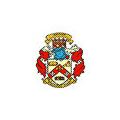Studies & Degrees in Public Affairs
Choose where you would like to study Public Affairs:
AustraliaAustriaBrazilChinaIndiaIrelandSpainThe United StatesZimbabwePublic Affairs Study Programs
In the field of studies, public affairs is defined as the learning of problems and issues involving the reciprocal relation between the public and the government; it is the study that determines the carrying of the detailed matters that concern the governing body of the state.
In schools, public affairs relates on the concept of authority to govern, transferring of authority from central to local government, responsibility, and government’s protection to group of clients. It is the objective of the discipline to establish relationship of fairness and impartiality based in the principle of democratic quality of enhancement; administration of law or equity; adequately operative; carrying out of public services particularly in the area of nonprofits and non-taxable.
The objective of government - the specific function, the implementing measures that support the democratic systems, resources allocations, method of governing, and peoples’ concern- are matters that are expounded. The appropriate venue for the ventilation of ideas is the principle of public administration, and the school; this is where the student gives the benefit to the principle in question.
In the study, the student can choose what graduate degree he has to attain: Masters of Public Affairs, Masters of Public Administration, Masters of Public Policy, and Masters of Public Management. He can also pursue the doctorate degree in public administration and select either one of: Doctor of Public Administration or the Ph.D. in Public Administration.
If the student chooses the degree Masters of Public Administration (MPA), he opted for a public assistance career in management which offers different kinds of public assistance in every rank in government, in the private sector, in organized group of people, and in the international sphere. He follows the programs used by leaders and managers: develop the skills and methods; carry out strategic plans; plan or propose undertakings, aims measures with long term objectives. The student learns to solve budgetary problems, human resource tasks, and structural complexities.
Essential courses include decision making and problem solving; government affairs and moral law and processes for the mechanism of knowledge; human resources budgeting and financial processes; preparation of policies and programs; implementation and assessment; social division based on economic or social status; concept of organization and running of a business or system and response to situation or behavior.
Public policy programs are: political science, economics, statistics, law, international relations, international development, public finance, ethics, sociology, and public administration. Other schools have quantitative analysis, management information systems, organizational behavior, project management and operations research.
Around the world there are schools that offer the course: In Ottawa, Canada, there is the Carleton University; School of International and Public Affairs at Columbia University; London School of Economics and Political Science; the Institut d’Etudes Politiques de Paris, the Hertie School of Governance in Berlin; the Lee Kuan Yew School of Public Policy at the National University of Singapore; the Universidad Externado de Colombia in Bogota; Renmin University in Beijing. Every country around the world has two or more universities that offers Public Affairs course. In the U.S., there is Harvard University; New York University’s Center for Global Affairs; John Hopkins University; Massachusetts Institute of Technology; Stanford University; Tufts University; University of California; University of Colorado; Yale University; Duke University; University of Chicago; University of Indiana; and many more.
Careers for Public Affairs graduate are open and wide, such as: different kinds in the area of public service, in all levels of government institutions, in nonprofit organizations, in the international sphere, and in the private sector.


